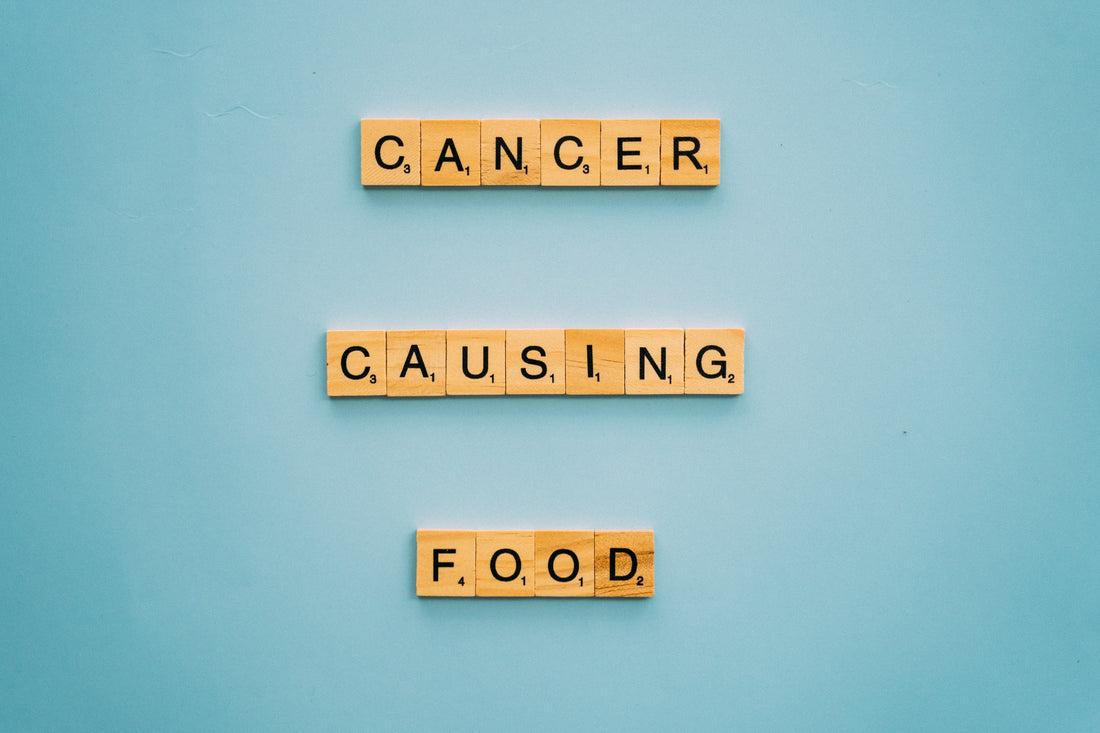
Red meat is carcinogenic-or isn't it?
Share
Imagine you're going to lunch with your colleagues. As always, the young team assistant orders a mixed salad with crisp vegetables. Your colleague from accounting orders a Wiener schnitzel with fries, and your intern orders spaghetti Bolognese. On a whim, you order the 400g sirloin steak medium rare and skip the side dish. While the waiter double-checks that there's no mistake in your order, you receive puzzled looks from your colleagues.
 Excessive meat consumption is out of fashion. Not only do sausages and steaks harm the environment, as a recent campaign by the food company Penny demonstrated, but most people believe that people who eat excessive amounts of red meat die earlier. The persistence of this view is largely thanks to the World Health Organization (WHO). The organization made headlines in 2015 when it classified red, unprocessed meat as a second-degree carcinogen.
Excessive meat consumption is out of fashion. Not only do sausages and steaks harm the environment, as a recent campaign by the food company Penny demonstrated, but most people believe that people who eat excessive amounts of red meat die earlier. The persistence of this view is largely thanks to the World Health Organization (WHO). The organization made headlines in 2015 when it classified red, unprocessed meat as a second-degree carcinogen.
Following the WHO's 2015 cue, our media landscape also immediately turned its attention to meat criticism. The Süddeutsche Zeitung alone published more than five articles that year criticizing steak and lamb chops. All other German daily newspapers and media outlets followed suit with similarly disastrous reporting.
But what will the facts on red meat look like in 2025? Is it really clear that red meat is carcinogenic? We've compiled an overview of the topic of meat and cancer for you – with surprising results.
Why were meat and sausage classified as carcinogenic?
"Sausage and meat classified as carcinogenic" was the headline in the Frankfurter Allgemeine Zeitung (FAZ) in October 2015. All major daily newspapers commented on the report by the International Agency for Research on Cancer (IARC), a WHO agency. What many had always suspected seems to have come true in 2015. Red meat is not only unhealthy, but also highly likely to cause cancer.
IARC researchers came to this conclusion after analyzing 800 studies that looked for possible links between the consumption of red meat or processed meat and various types of cancer. A team of 22 scientists from 10 different countries found that the risk of colon cancer increases by 17% for every 100g of red meat consumed daily. When consuming meat products such as sausage or ham, however, just 50g per day leads to an 18% increased risk of colon cancer. The report itself classifies meat products as a Group 1 carcinogen, a category that also includes tobacco smoking, arsenic, and formaldehyde. Red meat, the report states, is "probably carcinogenic to humans." But what exactly is this classification based on?
An examination of the IARC's detailed report from 2018 reveals that of the original 800 studies, only 14 were included in the final analysis. This represents 1.75%. These 14 studies were exclusively correlational studies, eight of which showed no association between red meat consumption and colon cancer. Of the remaining six studies, only one showed a statistically significant association, meaning it was not due to chance.
Let's recap: Of the 800 studies cited in the 2015 report, only 14 were considered for the results and recommendations. All 14 studies are non-experimental in nature, and only one of the 14 studies found a significant correlation between meat consumption and colon cancer!
The Healthy User Bias
 This study examined the population of Seventh-day Adventists. This is a religious group from California that promotes a healthy lifestyle and abstains from the consumption of animal products, alcohol, and tobacco. It therefore remains highly questionable whether abstaining from meat reduces the risk of colon cancer in this population or whether other health-promoting behaviors influence the outcome. In epidemiology, this is referred to as a "healthy user bias," the fact that particularly health-conscious people engage in other behaviors besides diet that have a positive impact on their health. Those who eat a health-conscious diet are also more likely to
This study examined the population of Seventh-day Adventists. This is a religious group from California that promotes a healthy lifestyle and abstains from the consumption of animal products, alcohol, and tobacco. It therefore remains highly questionable whether abstaining from meat reduces the risk of colon cancer in this population or whether other health-promoting behaviors influence the outcome. In epidemiology, this is referred to as a "healthy user bias," the fact that particularly health-conscious people engage in other behaviors besides diet that have a positive impact on their health. Those who eat a health-conscious diet are also more likely to
- to follow current nutritional recommendations
- not to smoke
- not to drink
- to exercise regularly
- spend more money on health-promoting measures
- to consult a doctor more often
The study authors also noted that the association between red meat and colon cancer was disproportionately strong in obese individuals—groups of people with other risk factors (such as diabetes or insulin resistance) known to lead to an increased risk of cancer.
Imagine for a moment the opposite of a health-conscious person. Perhaps you think of a construction worker or shift worker who has currywurst or kebab on the menu every day. If a study found that construction workers have a 15% lower life expectancy than the general population, would you blame the currywurst? Or could it perhaps be that construction workers, on average,
smoke more often?
drink more alcohol?
Avoid doctor or preventative check-ups more often?
stay unprotected in the blazing midday sun for a longer period of time?
As the study director, could you in good conscience announce that daily currywurst consumption shortens the life expectancy of construction workers by 15% and possibly generalize that to another population, such as office workers? Hardly.
Epidemiological correlation studies cannot answer this question, nor can the results be extrapolated to other populations. Correlations provide initial evidence of a mechanistic relationship, which should be verified with the help of intervention studies.
Imagine we randomly divide the construction workers in our fictitious intervention study into two groups:
Group 1: Daily currywurst consumption for 10 years
Group 2: Daily vegan currywurst consumption for 10 years
After 10 years, the incidence of colon cancer will be compared in both groups. Since the individual construction workers were randomly assigned to Group 1 or 2, it can be assumed, with a corresponding cohort size, that healthy and unhealthy behaviors are approximately equally prevalent in both groups. This could provide a clear conclusion about the association between currywurst consumption and colon cancer incidence among construction workers.

In reality, this study would be extremely costly, as interest from universities, research institutions, or currywurst producers would likely be limited. Furthermore, it would be difficult to find enough volunteer construction workers willing to undergo such a rigorous intervention (eating a vegan currywurst every day!).
Therefore, intervention studies in nutritional science offer greater diagnostic objectivity, as certain influencing factors (confounding variables) such as healthy user bias can be neutralized, but they are associated with much higher costs and are often severely limited in terms of sample size (number of study participants).
Among the 784 studies excluded from the IARC report, numerous empirical studies with enormous sample sizes failed to find a correlation between meat consumption and colorectal cancer. For example, a study of over 200,000 Asians whose eating habits were monitored over 10 years found lower mortality rates (from cancer and cardiovascular disease) for men and women with the highest meat consumption.
A study from England involving over 60,000 vegetarians and non-vegetarians found that vegetarians had an increased risk of colon cancer. Furthermore, the report ignored all intervention studies with animals that found no link between colon cancer and meat consumption.
Of course, we now know that correlation does not imply causation and we also know that results from animal experiments should only be understood as initial guidance for future intervention studies.
You might be asking yourself, "Is red meat not so unhealthy after all?" I wouldn't blame you, because that's exactly the question the Tagesspiegel newspaper posed to its readers in September 2019, when a group of researchers published a study challenging the findings of the IARC report. The researchers analyzed 12 clinical intervention studies (out of the report's 800 studies) with a total of 54,000 participants and concluded that limited meat consumption does not reduce the incidence and mortality rates of cancer and cardiovascular disease.
„These recommendations are, however, primarily based on observational studies that are at high risk for confounding and thus are limited in establishing causal inferences, nor do they report the absolute magnitude of any possible effects.“
The expert panel was particularly critical of the fact that the classification of meat in the IARC report is based on observational studies that provide only limited information about the causality of the correlation and are susceptible to confounding variables, in particular the healthy user bias.
There is therefore no health reason to limit the consumption of unprocessed red meat, as limiting meat consumption has no positive effect on health.
I hope this article has given you a few arguments to use if your colleagues approach you at lunch next time. Avoiding red meat neither reduces the incidence of cancer nor lowers the risk of heart attacks. Red meat has rightly been at the top of the human menu for millions of years and is what made us homo sapiens. So don't let it spoil your appetite for a juicy steak!
